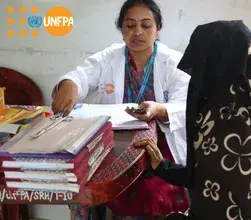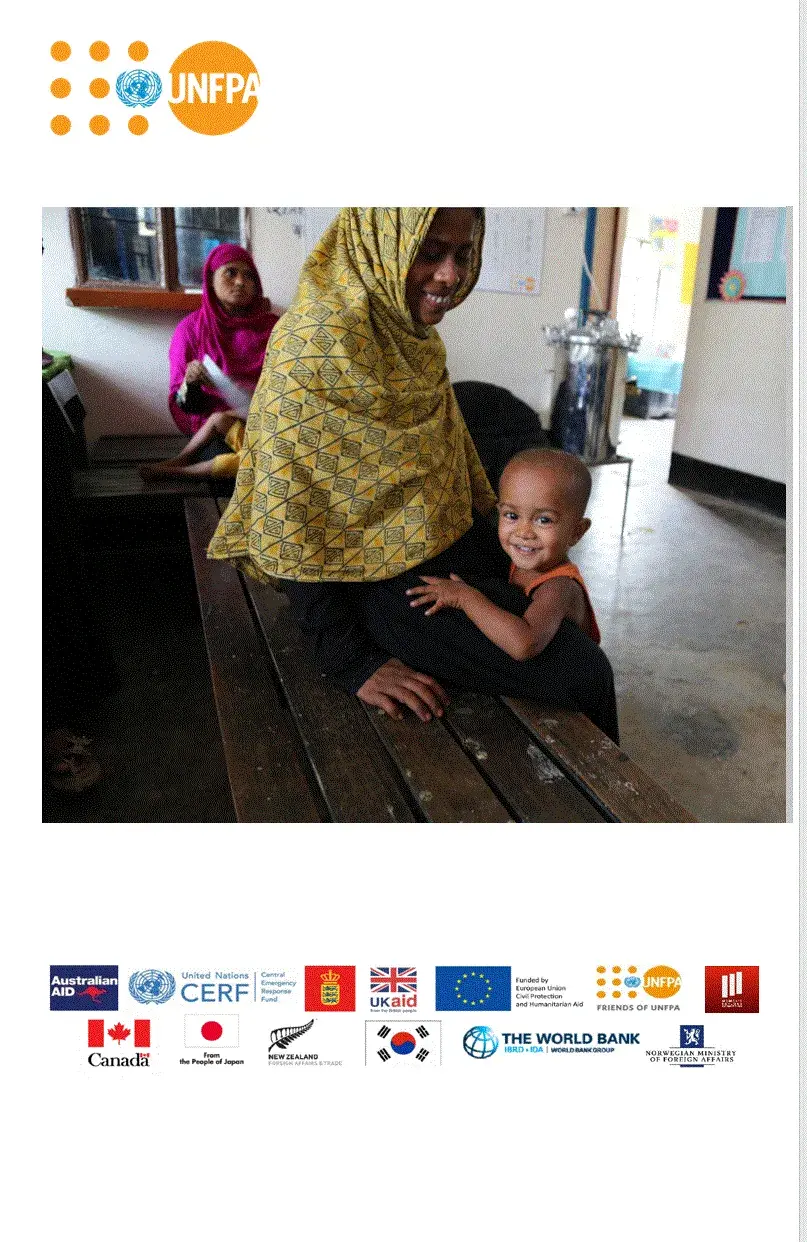“Recently, I have felt that a distance has developed between me and my son. He is not behaving with me like before. I think this is because during the last four months, I have had to repeatedly be isolated after serving in a ward with COVID-19 patients.”
These words spoken by a Bangladeshi midwife are something that healthcare professionals around the world can currently relate to. The COVID-19 pandemic has placed an unprecedented burden on the personal and professional lives of those working in the health sector. High risk of infection, extreme pressure to perform at work, shortages of necessary equipment and lack of ability to spend time with family and friends are all posing a serious threat to the mental health of those saving lives amidst this crisis.
To address this problem, the Government of Bangladesh has taken the initiative to provide mental health support to health service providers involved in the COVID-19 response. With funding provided by UNFPA, three webinars were held in September to provide mental health support to health service providers around Bangladesh. All trainings were facilitated by professional psychologists from Dhaka University and 158 health professionals from 15 hospitals around the country participated.
Stress and its effects on a person’s behavior was one of the key issues that was addressed during the webinars. This elicited lively reactions from the participants and prompted them to ask many questions on the issue.
“Lately, I have been losing my temper in completely silly situations. Can you help me to manage this situation better?,” asked one of the healthcare workers, who participated in the webinar.
To provide an answer to such inquiries, the participants received a detailed lecture on the variety of ways stress manifests itself in people and what causes and exacerbates it. In addition, they were given simple practical advice on how stress can be controlled and alleviated even amidst extremely difficult situations, such as the ongoing COVID-19 response. Judging from the feedback of the health service providers present, the guidance seems to have come to good use.
“Thanks to everyone who has been a part of arranging this training. It has been very helpful to us and I hope there are more plans to arrange trainings like this in the future,” remarked one of the health care workers at the end of the sessions
UNFPA considers ensuring both the physical and mental health of health workers to be a priority amidst the ongoing pandemic. As the world needs their efforts and expertise more than ever, it goes without saying that healthcare professionals have the right to live stable lives as they are saving lives.





